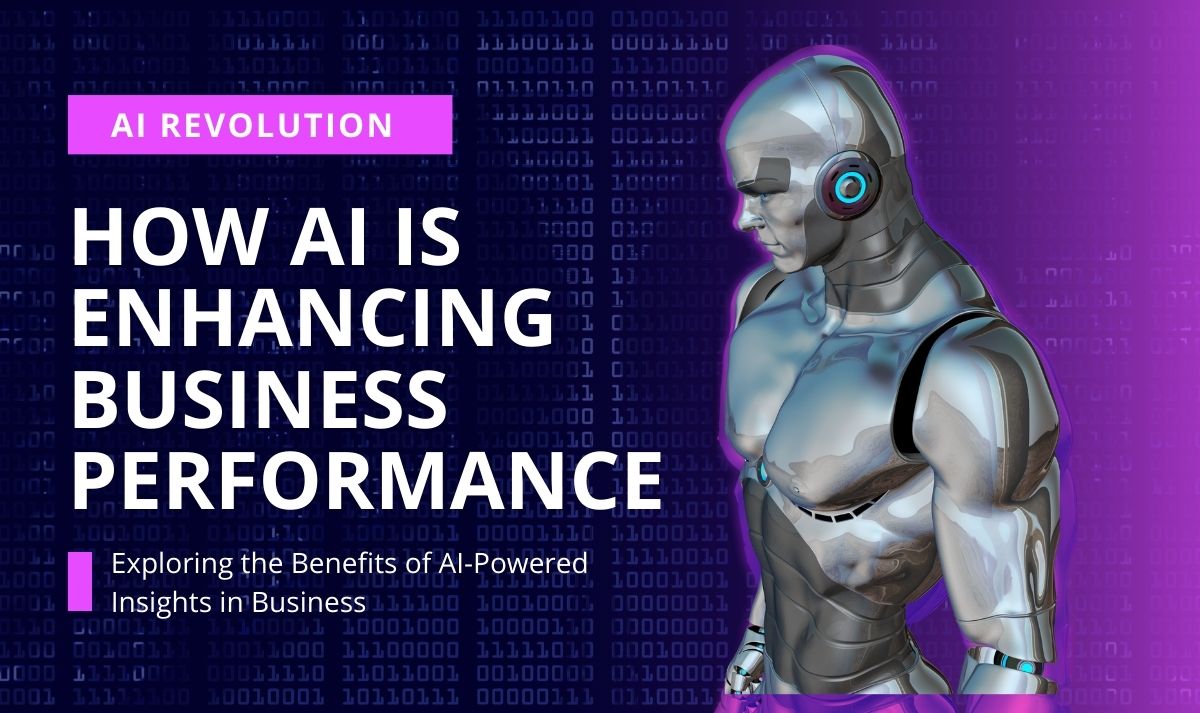
In the age of digital transformation, businesses are increasingly turning to artificial intelligence (AI) to enhance their performance across various sectors. From streamlining operations to revolutionizing customer experiences, AI has become an indispensable tool for businesses striving to stay competitive in today's fast-paced market landscape. This essay explores how AI is reshaping business performance, focusing on its impact on efficiency, innovation, and decision-making.
Enhancing Operational Efficiency:
One of the most significant contributions of AI to business performance is its ability to enhance operational efficiency. AI-powered automation systems can streamline repetitive tasks, reducing human error and increasing productivity. For example, in manufacturing, AI-driven robotics can optimize production processes by automating assembly lines and detecting defects in real time, leading to higher output and lower costs.
Moreover, AI-powered analytics tools enable businesses to gain valuable insights from vast amounts of data, allowing them to make data-driven decisions and optimize resource allocation. Machine learning algorithms can analyze historical data to predict future trends, helping businesses anticipate demand fluctuations and optimize inventory management. By leveraging AI for predictive maintenance, companies can also minimize downtime by identifying potential equipment failures before they occur, thus optimizing asset utilization and reducing maintenance costs.
Innovating Business Models:
AI is also driving innovation by enabling businesses to develop new products and services and reimagine existing business models. Through natural language processing (NLP) and machine learning, AI-powered chatbots and virtual assistants are transforming customer service by providing personalized support around the clock. These virtual agents can handle customer inquiries, process orders, and even anticipate customer needs, enhancing customer satisfaction and loyalty.
Furthermore, AI-powered recommendation systems are revolutionizing e-commerce by analyzing customer preferences and behaviour to deliver personalized product recommendations. By leveraging AI to understand customer preferences and market trends, businesses can tailor their offerings to meet individual needs, driving sales and revenue growth.
Additionally, AI is fueling innovation in healthcare by powering predictive analytics and diagnostic tools that can identify disease patterns and recommend personalized treatment plans. Through deep learning algorithms, AI can analyze medical images, such as X-rays and MRIs, with greater accuracy than human experts, enabling early detection of diseases and improving patient outcomes.
Empowering Data-Driven Decision-Making:
Another key aspect of AI's impact on business performance is its ability to empower data-driven decision-making. By harnessing the power of big data and AI-driven analytics, businesses can gain actionable insights into market trends, customer behaviour, and competitive dynamics, enabling them to make informed decisions in real time.
For example, AI-powered business intelligence platforms can analyze customer data to identify emerging trends and preferences, enabling businesses to tailor their marketing strategies accordingly. By segmenting customers based on their purchasing behaviour and preferences, businesses can target them with personalized offers and promotions, increasing conversion rates and sales.
Moreover, AI-driven predictive modelling can forecast future demand and sales trends with a high degree of accuracy, enabling businesses to optimize pricing strategies and inventory management. By identifying potential risks and opportunities, AI empowers businesses to adapt quickly to changing market conditions and stay ahead of the competition.
Challenges and Considerations:
While AI offers immense potential for enhancing business performance, its adoption also poses challenges and considerations. Privacy and data security are significant concerns, as businesses must ensure that sensitive customer data is protected from cyber threats and unauthorized access. Moreover, ethical considerations surrounding AI, such as bias in algorithms and job displacement, require careful attention to mitigate potential risks and ensure responsible AI deployment.
Furthermore, the success of AI initiatives depends on factors such as data quality, talent availability, and organizational readiness. Businesses must invest in data infrastructure and talent development to harness the full potential of AI and drive meaningful business outcomes. Additionally, fostering a culture of innovation and experimentation is essential for businesses to leverage AI effectively and stay ahead in today's rapidly evolving marketplace.
Conclusion:
In conclusion, AI is transforming business performance by enhancing operational efficiency, driving innovation, and empowering data-driven decision-making. From optimizing production processes to revolutionizing customer experiences, AI has become a strategic imperative for businesses seeking to stay competitive in today's digital economy. However, realizing the full potential of AI requires addressing challenges such as privacy, ethics, and organizational readiness. By embracing AI responsibly and investing in the necessary capabilities, businesses can unlock new opportunities for growth and success in the AI-powered future.







